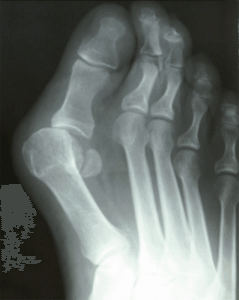bunion specialist seattle
Displaying items by tag: bunion specialist seattle
Dr. Brandon Nelson Discusses Bunion Surgery For Runners

I treat a lot of runners in the office for all sorts of foot and ankle pain. I am a runner myself and so I enjoy treating these patients. It seems as though a lot of runners have foot deformities and one of most common is a bunion. It is important to note that the bunion itself can grow larger with increased activities like running. Running and bunions can be challenging from a structural standpoint and from a pain reduction standpoint. I feel like I have a lot of tools at my disposal to help runners become pain free with activities.
The majority of runners I see are great conservative candidates and become extremely happy with their progress. There are a few patients that do not respond to conservative measures and require surgical intervention. It is very important for runners to seek a physician that has a lot of experience dealing with runners in their clinic. This is especially important when contemplating surgical intervention and I can tell you I am extremely cautious with procedure selection on runners. If you have a bunion and are getting pain with running you may be a candidate for conservative measures or surgical measures. I would love to help you keep running happy trails!
Give us a call at 425-391-866 or make an appointment online today.
Dr. Timothy Young Talks About Bunion Anatomy

Most bunion problems involve an alignment issue with the underlying bones. The first metatarsal and the great toe become out of typical alignment. The joint itself become subluxed and is then prone to arthritis and adaptive changes.
Bunions can develop an early age. This is called juvenile onset. This involves the first metatarsal shifting away from the adjacent second metatarsal and the foot becomes wider. In some cases this involves a splayfoot. Also there is more risk of bunion formation when there is underlying metatarsus adductus. This is a genetic inherited foot structure. It is common to see other family members that have a bunion. Often times you can look to let say your mother or grandmother and find that they also have a bunion, because of this genetic pattern.
Tight shoes can speed the process up and make things worse! However, in general, you are born with a foot type that is prone to a bunion.
If you have concerns about a bunion, give us a call at 425-391-8666 or make an appointment online!
Dr. Timothy Young and Dr. Brandon Nelson.



